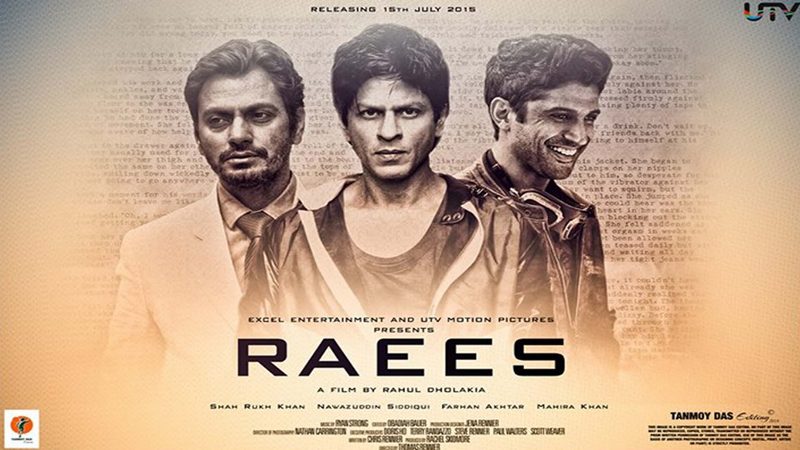 Raees is purportedly made on the life of liquor baron Abdul Latif — who had amassed a fortune dealing in liquor in dry Gujarat — although the film’s disclaimer declares it as a work of fiction. Set in the late 70s and 80s in Fatehpur, Gujarat, Raees Alam (SRK) is a myopic school-going boy whose mother has ingrained in him the philosophy ‘koi dhanda bada ya chhota nahi hota’. Displaying the Gujarati flair for business, the lad agrees to bootleg for liquor baron Jairaj Seth (Atul Kulkarni) who sees in Raees ‘baniye ka dimag aur miyabhai ka daring’. As he grows up, so does his ambition — he branches out on his own and aims to be the head of the syndicate. This brings him on a collision course with his mentors, his collaborators within the government and above all SP Jaideep Majmudar (Nawazuddin Siddiqui), who, despite being shunted all over the state, has his guns firmly trained on Raees.
Raees is purportedly made on the life of liquor baron Abdul Latif — who had amassed a fortune dealing in liquor in dry Gujarat — although the film’s disclaimer declares it as a work of fiction. Set in the late 70s and 80s in Fatehpur, Gujarat, Raees Alam (SRK) is a myopic school-going boy whose mother has ingrained in him the philosophy ‘koi dhanda bada ya chhota nahi hota’. Displaying the Gujarati flair for business, the lad agrees to bootleg for liquor baron Jairaj Seth (Atul Kulkarni) who sees in Raees ‘baniye ka dimag aur miyabhai ka daring’. As he grows up, so does his ambition — he branches out on his own and aims to be the head of the syndicate. This brings him on a collision course with his mentors, his collaborators within the government and above all SP Jaideep Majmudar (Nawazuddin Siddiqui), who, despite being shunted all over the state, has his guns firmly trained on Raees.
Raees is a story of deceit, smuggling, corruption and terrorism. Director Rahul Dholakia, who made the award-winning Parzania in 2005, seems to know his Gujarat well. But sadly Dholakia, in only his fifth film in 12 years, juxtaposes two stories of different eras — corruption and terrorism and only succeeds in making the film predictable after a point.
Raees’s wife Aasiya (played by a very unimpressive Mahirah Khan) doesn’t have much to do. One seriously wonders why she had to be imported from across the border when there are so many gifted and comely actresses available, even in Gujarat. Narendra Jha as don Musabhai does well in a limited role. Sunny Leone, in the remixed ‘Laila O Laila’, ups the glamour quotient but all too briefly. SRK, with a larger-than-life presence and a performance markedly better than that in Fan or Dilwale, does no harm to his cult following. The set design (the assembly of liquor bottles would be the envy of a Hong Kong Duty Free) and art direction complements the narrative.
On the flip side, there are certain portions in the film which vegetarians would find distasteful. Also, the background theme would remind one of the score in Don. But it is Nawazuddin’s performance, with the help of some wry repartees and one-liners, that marks him out as one of the finest actor of this generation. Utkarsh Majumdar, as the ‘ghelsappa’ speaking benevolent Parsee Dr. Sanjanwala, shines. In the ultimate analysis, it all boils down to SRK the star’s flair v/s the actor Nawazuddin’s histrionics. Watch it for both.
- Parsee Gym Retains Supremacy In 7th Late Manek Golvala T10 Cricket Cup - 13 April2024
- Parsee Gym Holds 9th All-Parsee TT Tourney - 6 April2024
- Parsee Gym Holds Gala Jamshedi Navroze Celebrations - 30 March2024
